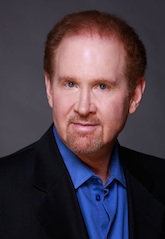Laurence Heller, Ph.D. is the founder of the NeuroAffective Relational Model (NARM) ( please add TM for trademark). He is the co-author of Crash Course: A Self-Healing Guide to Automobile Accident Trauma with Diane Poole Heller published in multiple languages and the recent book Healing Developmental Trauma: How Early Trauma Affects Self-Regulation, Self-Image and the Capacity for Relationship . This recent book written with Aline LaPierre, Psy.D. has also been published in multiple languages.
He was the founder of the Gestalt Institute of Denver, is a Senior Faculty member of the Somatic Experiencing Training Institute and has been a clinician for over 30 years. He teaches all over the world and regularly in many countries in Europe.
NARM™ is a neuroscientifically informed,somatically oriented, and psychodynamically informed approach for working with developmental trauma and works both top-down and bottom-up. He is currently teaching NARM™ in the U.S. and throughout Europe.
Check out the following Psychology CE Courses based on listening to Shrink Rap Radio interviews:
Jungian Psychotherapy Part 1 (6 CEUs)
Jungian Psychotherapy Part 2 (7 CEUs)
Jungian Psychotherapy Part 3 (7 CEUs)
Jungian Psychotherapy Part 4 (6 CEUs)
Jungian Psychotherapy Part 5 (7 CEUs)
Jungian Psychotherapy Package of the Five Above (33 CEUs)
Wisdom of The Dream (4 CEUs)
Positive Psychology (6 CEUs)
Pros and Cons of Positive Psychology (5 CEUs)
CERTIFICATE PROGRAM IN POSITIVE PSYCHOLOGY (32 CEUs)
Body-Mind: Goodbye to Dualism (6 CEUs)
Brain: Insights from Neuroscience (8 CEUs)
Meditation & Psychotherapy (8 CEUs)
Insights from Neuroscience (8 CEUs)
Neuroscience and Healing (8 CEUs)
Get our iPhone/Android app!
Get 10% discount on all lectures at The JungPlatform using our discount code: DRDAVE
A psychology podcast by David Van Nuys, Ph.D.
copyright 2013: David Van Nuys, Ph.D.
Podcast: Play in new window | Download
Subscribe: Apple Podcasts | RSS

Dr. Dave.
Do you think transcendence might be a synonym for “aliveness”. Maslow added the transcendent level to his famous hierarchy later in life. I believe your podcast effort is your effort at being “alive” in the context of contributing to people’s understanding of therapy.
For your next step have you considered having people with similar therapies engage in a recorded discussion forum that you would moderate. There is a real need for convergence of the alphabet soup of therapies. At one time therapies carried the name of their founders. Now there is this proliferation of acronyms each representing an effort to carve out some therapeutic territory. They all look similar but divided by some idiosyncratic use of terms.
You could do something like Charlie Rose did with his brain series.
I think you would be a very effective moderator. I know it’s easier said than done because it’s hard to get interviews let alone groups of professionals together. It would be risky for professionals too. They might look bad.
Wow, too many important areas to focus on in this interview, but to me this feels like just the kind of inter/multi-disciplinary approach that our lecturers are encouraging right now. A lot of points resonated with me, and I think NARM is something I will investigate both as a patient and future clinician.
Great interview…
So I picked up his book.
What a great read! Well written. Many helpful graphics and case examples.
A brilliant synthesis of developmental psychology, psychoanalytic theory and somatic experiencing.
Lawrence is a master of bringing together “top down” and “bottom up” approaches to achieve impressive results in affect regulation and overcoming developmental trauma.
Revolutionary!